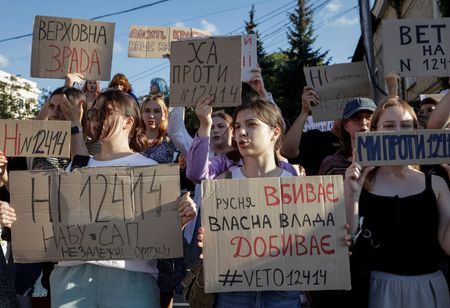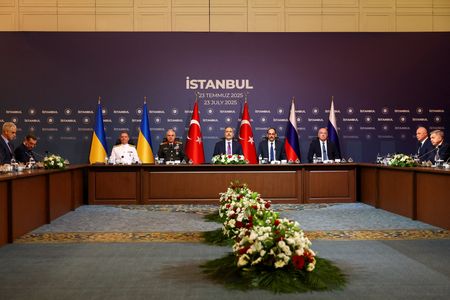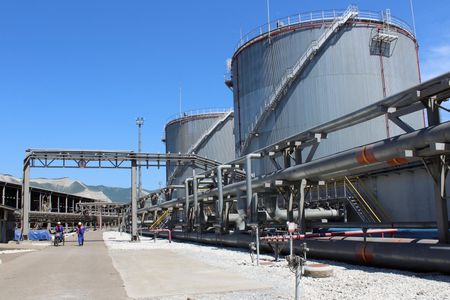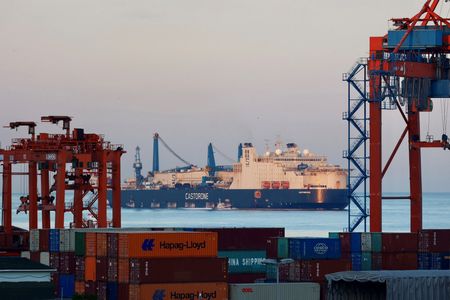BERLIN (Reuters) -Germany’s cabinet approved a draft law on Wednesday aimed at accelerating defence procurement and construction on military bases, part of a broad effort to better defend itself and allies in response to a more assertive Russia.
The bill, which supports German efforts to meet higher NATO defence spending targets, also widens the definition of military needs to include civilian-related items such as medical supplies and construction materials.
U.S. President Donald Trump has demanded that European allies in NATO spend much more for the defence of their continent, accusing them of having long taken the outsized U.S. role in protecting Europe’s security for granted.
“With this draft law, we are removing many of the constraints that have prevented us from moving even faster,” Defence Minister Boris Pistorius said after the cabinet meeting.
“We can now truly focus on what matters in the interests of the Bundeswehr’s defence capability and equipment,” he said.
Under the proposed legislation, mandatory tendering requirements for defence contracts will be relaxed – or waived entirely in particularly urgent cases. Large contracts will no longer need to be split into smaller tenders.
The threshold for triggering a formal procurement procedure will rise, in general, to 50,000 euros ($58,685) from less than 15,000 euros, Economy Minister Katherina Reiche said.
For construction projects, the threshold will increase to 1 million euros, and to 443,000 euros for other goods and services, she added at a press conference alongside Pistorius.
Environmental standards will also be eased – for example, in the construction of military barracks – while military airports will receive special consideration and protection.
“Time is the decisive factor,” the text of the draft legislation states, citing the threat posed by Russia in the face of its 2022 full-scale invasion of Ukraine.
The legislation is initially set to remain in force for 10 years.
Earlier this year, Chancellor Friedrich Merz relaxed constitutionally enshrined debt limits to enable higher defence spending.
That move allowed Berlin to raise defence expenditure to 3.5% of GDP by 2029 — a sharp increase from the 2% NATO quota it met in 2024 for the first time in three decades.
($1 = 0.8520 euros)
(Reporting by Markus Wacket and Miranda Murray; editing by Mark Heinrich)











